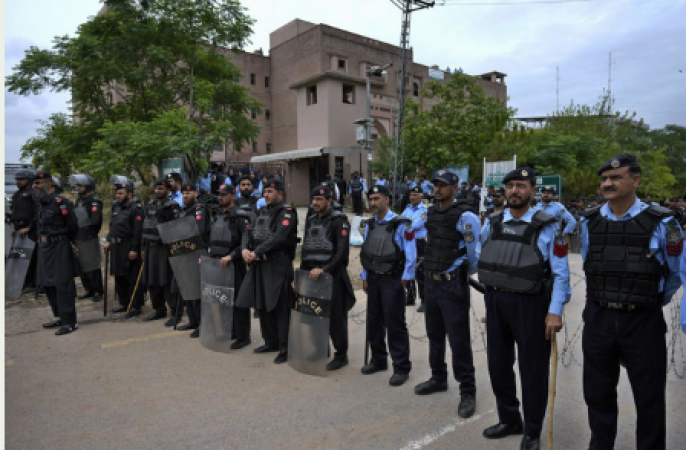
Islamabad: Embattled Imran Khan, the leader of the opposition in Pakistan, appeared in court once more on Wednesday as the country's human rights watchdog warned that all parties are to blame for the rapidly worsening democratic crisis.
Before Islamabad orchestrated a crackdown on his party, which included mass arrests and a promise to try some protesters in army courts, Khan's brief arrest earlier this month sparked days of deadly unrest.
In the same corruption case that led to Khan's arrest on May 9, the Islamabad High Court and a specialised corruption court granted him bail on Wednesday, according to his attorneys.
Since the Supreme Court ruled that Khan's detention was unlawful and freed him, thousands, including grassroots supporters and important aides, have been arrested.
Also Read: Islamic charities in the UK give $24.4 billion to charitable causes each year
While Khan claims his Pakistan Tehreek-e-Insaf (PTI) party is being dismantled in advance of elections scheduled for October, Islamabad argues that the arrests are justified because the country was the target of anti-state terrorism.
The head of Pakistan's Human Rights Commission (HRCP), however, Hina Jilani, issued a stern warning to "all political stakeholders."
"They may find themselves unable to steer the country safely through the numerous crises it is facing unless they desist from any further measures that could imperil the country's fragile democracy."
Khan has launched an unprecedented campaign of defiance against Pakistan's powerful military establishment since he was ousted from office in a no-confidence vote last spring. Analysts believe that Khan's rise to and fall from power was motivated by this powerful military establishment.
Also Read: Pakistani soldier protecting polio team was killed by militants
He repeatedly made explosive claims that they planned an assassination attempt against him, and his arrest was widely perceived as retaliation ordered by top brass.
The HRCP claimed that "civilian supremacy has emerged as the greatest casualty" of the escalating political crisis, which coincides with Pakistan's deteriorating security situation and stagnant economy.
Military interference in politics has become inevitable as a result of "the government's inability — or unwillingness — to safeguard civilian supremacy" and PTI's "constant humiliation of law," Jilani claimed.
Human Rights Watch criticised Islamabad on Wednesday for deciding to hold 33 civilians accountable for allegedly attacking army installations during the unrest by having them tried in military courts.
Also Read: Why Big MNC are closing their factories and production facilities from China's mainland
The prosecution of civilians shouldn't take place in Pakistan's military courts, which employ covert methods that violate due process rights, according to associate Asia director Patricia Gossman.
Khan, a former cricket star, is becoming more and more isolated as the PTI crackdown intensifies as several senior members have defected.
According to him, resignations are forced through arrests. He is still by far Pakistan's most well-liked politician, though.